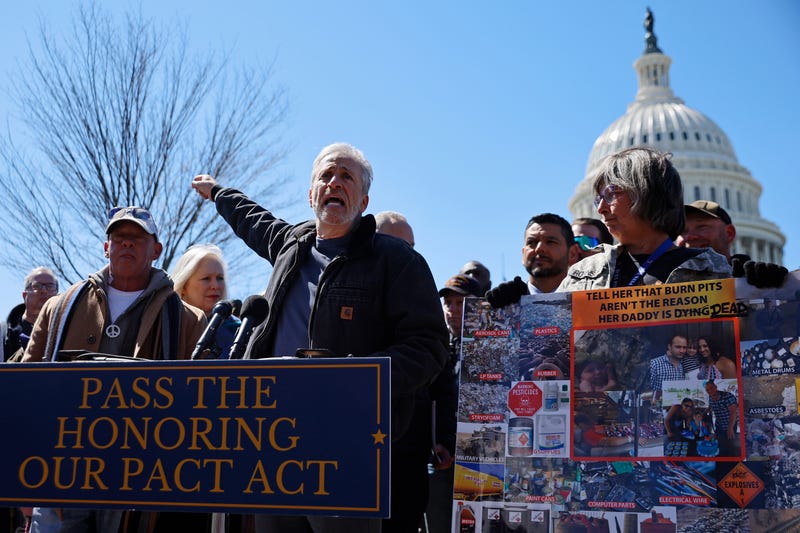PHILADELPHIA (KYW Newsradio) — Pennsylvania’s two U.S. senators are on the opposite sides of a bill that would expand medical care for veterans exposed to environmental hazards in war zones, such as toxic fumes from burn pits. The bill has been getting more attention since comedian Jon Stewart joined the crusade to get the bill passed.
On a Monday morning press call, Sen. Bob Casey, D-Pa., pushed for passage of the PACT Act, which would greatly expand the kinds of cancer for which veterans would automatically receive U.S. Department of Veterans Affairs coverage, without having to prove their illness was caused by exposure to toxins during military service. It has come to be known as the burn pit bill because so many veterans tie their rare cancers to the trench fires the U.S. military uses to dispose of equipment, medical waste and other trash overseas.
The bill passed the U.S. Senate in June, 84-14, something Casey noted was extraordinary in these divisive times.
“People on both sides of the aisle, both houses, all across the country, agree: This is the right thing to do, to honor the service of people who were exposed to burn pits,” Casey said.
The Senate had to vote again after the U.S. House passed a slightly modified version. Toomey rallied 25 Republicans to change their votes, bringing the tally to 55-42 — so it lacked a filibuster-proof majority.

One focus of Casey’s anger is his fellow senator from Pennsylvania, Republican Pat Toomey, who voted against the bill both times.
In a statement emailed from his office, Toomey said a budget gimmick in the bill would inflate its cost from an estimated $280 billion to $400 billion over the next 10 years. He is calling for an amendment to eliminate the “slush fund,” which he says would not reduce spending on veterans “by a single penny.”
Casey dismissed the argument, saying politics was behind the opposition. Casey noted that Toomey was among the 14 senators who voted “no” the first time the bill was up for a vote.
“They’re holding up the bill because they don’t want to spend the money. It’s as simple as that. They’re going to vote no on this bill no matter what you do to the bill,” Casey said.
Democrats are expected to call for a third vote. Casey says he’s optimistic it will win back enough Republican support to pass with 60 votes at that time.
